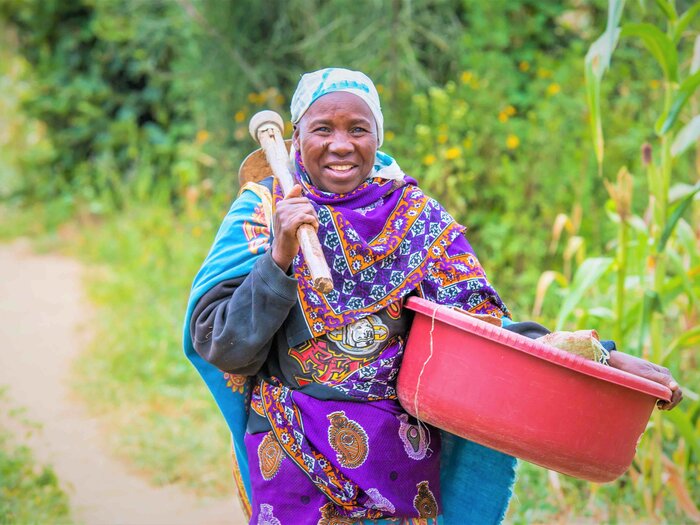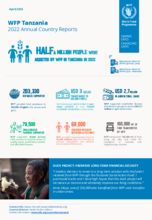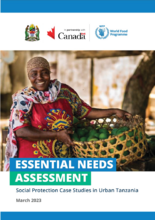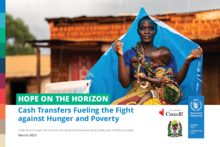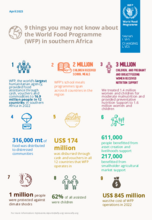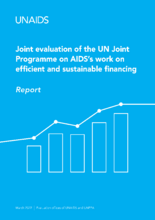Tanzania
- 34%
- of children under 5 are stunted
- 25%
- of the GDP comes from agriculture
- 61 million
- population
Tanzania is a lower-middle-income country with a population of 61 million. The country has experienced steady economic growth in recent years. However, 27 percent of the population still live below the poverty line and an additional 8 percent live in extreme poverty.
A significant share of the population remains malnourished, with high stunting (impaired growth due to undernutrition) and increasing rates of overweight, obesity and vitamin and mineral deficiency. An estimated 20 percent of families are unable to afford a diet with sufficient calories, while 59 percent cannot afford a nutritious diet.
Agriculture plays a key role in the national economy and provides a livelihood for 70 percent of the population, with women making up most of the sector’s labour force. Despite their participation, women often have limited access to land, credit and other resources – reducing their ability to produce and generate income, and making them more susceptible to shocks. The country is ranked 146 out of 191 on the Gender Inequality Index of 2022, mainly due to high maternal mortality rates, high adolescent birth rates and low levels of secondary education for girls due to early marriages and unplanned pregnancies.
The World Food Programme (WFP) has been in Tanzania since 1963, working with the Government, donors, other UN agencies, NGOs and the private sector to improve the food security and nutrition of vulnerable populations.
In line with its commitment to the 2030 Agenda, WFP’s Country Strategic Plan 2022-2027 targets inclusive economic growth through market-based interventions (such as financial inclusion and commodity marketing digital solutions), strengthened human capital, increased access to affordable nutritious foods and healthy diets, and climate action. Under the plan, WFP is expanding its operations across more regions in Tanzania’s mainland and Zanzibar, while increasing its focus on youth, women and people with disabilities.
What the World Food Programme is doing in Tanzania
-
Food assistance and livelihoods support
-
To address food and nutrition requirements of refugees living in camps in north-western Tanzania, WFP distributes a monthly food basket to over 200,000 beneficiaries and provides nutritious food to vulnerable populations. In refugee hosting areas, WFP fosters collaboration between host communities and refugees by supporting smallholder livelihoods, facilitating food procurement and promoting environmental restoration.
-
Investing in Nutrition
-
WFP engages in policy dialogue, advocacy and coordination to promote nutrition, school feeding and food fortification in the country. WFP strengthens institutional capacity by training health workers and supplies nutrition equipment and tools to enhance their effectiveness. WFP provides technical support to the government to facilitate the design and implementation of cost efficient and sustainable school meals programmes. This includes the establishment of school gardens to improve access to nutritious foods such as biofortified fruits and vegetables.
-
Climate resilience
-
To help Tanzania build a sustainable future, WFP empowers communities to adapt to effects of climate extremes through initiatives aimed at restoring, preserving and protecting natural resources. WFP supports farmers to increase crop productivity and quality by promoting climate-smart agricultural practices and facilitates access to knowledge and equipment for effective post-harvest loss management. WFP works with food and nutrition value chain actors to enhance efficiency and quality by providing technical assistance to improve food handling, storage, fortification, packaging and delivery practices.
-
Efficient and quality services
-
WFP delivers on-demand services to the Government, UN agencies and cooperating partners to enhance capacity to attain the Sustainable Development Goals. This includes the provision of innovation services aimed at generating new solutions or strengthening capabilities in information, communication and technology through training, software, equipment and knowledge transfer. WFP is working with the government to enhance the health sector supply chain system as well as contribute to the development of a cold chain transport system to match supply and demand of horticultural products, which, in turn, will contribute towards creating efficiency in the market.
United Republic of Tanzania news releases
Go to pagePartners and donors
Find out more about the state of food security in United Republic of Tanzania
Visit the food security analysis pageOperations in United Republic of Tanzania
Contacts
Office
Dar Es Salaam Plot No. 113, Ada Estates, Burundi Street/Mwindu Lane, Kinondoni. PO Box 77778,
Dar Es Salaam
Tanzania

